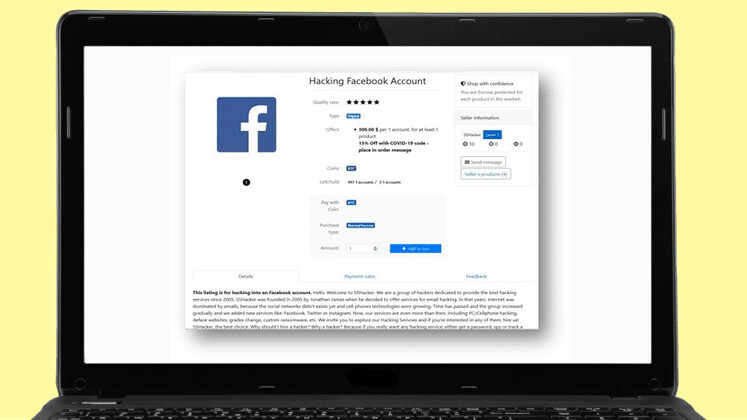
While the world is feeling frightened by the coronavirus pandemic, cybercriminals are taking full advantage of the situation by finding new ways to trick people into installing malware.
According to the latest research by security firm Checkpoint, hackers are using “COVID-19” code to sell malware and exploitation tools on the dark web. For example, below is a Facebook account hacking tool sold for $300 with “a 15% coronavirus discount.”


On the other hand, bad actors are also sending bogus product offers such a cheap MacBook Air, which is likely to be a fake or stolen product. So, you shouldn’t trust these.

The research team at Checkpoint also noted that there has been a rapid rise in number of coronavirus-related domains; 6,000 of them were registered last week. The security firm noted that out of coronavirus-based domain registered in the last three weeks, only 93 (0.8%) domains out of the newly registered ones were malicious. However, more than 2,200 sites (19%) were found to be suspicious.

In separate research, another security firm Zscalar noted that scammers are creating more and more sites with fake home testing kits and apps claiming to protect you from COVID-19.

Plus, cybercriminals are also using ‘corona’ or ‘covid’ as a part of the URL to carry out phishing attacks. These attackers are asking people to enter their email credentials and redirect them to a CDC article.

Earlier this month, we wrote about how hackers are using fake coronavirus maps and Android apps to steal data or money from you. So, it’s advisable that you go to trusted sources for information, or to purchase health-related devices. Plus, avoid opening attachments from someone you don’t know.
Get the TNW newsletter
Get the most important tech news in your inbox each week.




